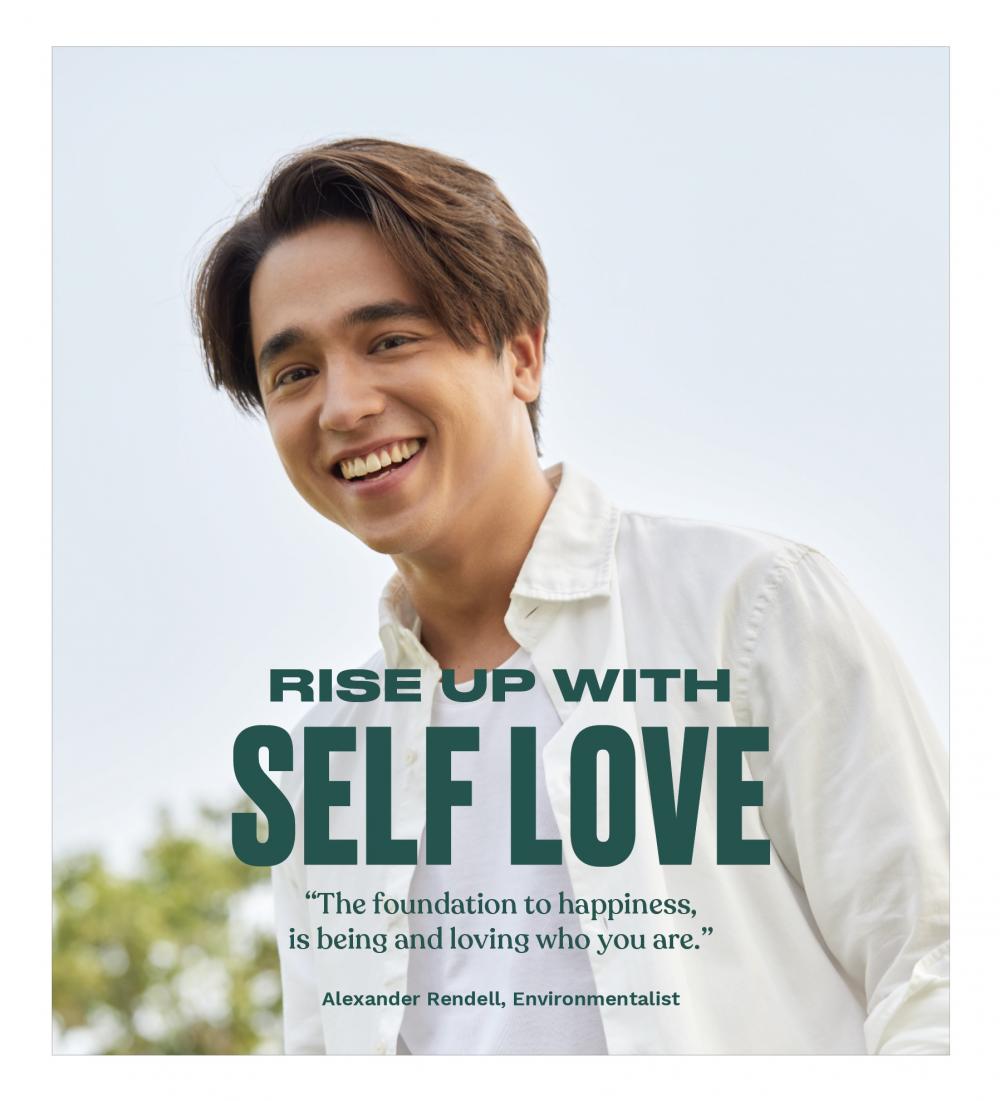In a world of comparison, others can make us feel that we are not good enough as who we are.
The Body Shop observed that women are often hit hardest by feelings of inadequacy. They respond by striving for perfection and trying to succeed in every aspect of their lives or withdraw, shut down and stay silent.
Instead of accumulating self-doubt, the British brand encourages recharging self-esteem and self-love through this year's global campaign.

Author and trans activist Charlie Craggs.
In Thailand, the "Rise Up With Self Love" campaign features a song by Polycat, written by lead singer Rattana Chanprasit, while actors Alexander Rendell and Kanawut Traipipattanapong share their thoughts on self-acceptance.
Rendell is a co-founder of Environmental Education Centre Thailand, which raises public awareness and understanding of the environment, as well as promoting sustainable use of the Earth's natural resources.
Last June, the United Nations Environment Programme announced Rendell as a National Goodwill Ambassador for Thailand.

Actor and environmentalist Alexander Rendell.
"The foundation to happiness is being and loving who you are," said Rendell. "If we have a strong self-love and self-acceptance, we can then help and take care of others."
It's an inside job, and once you start feeling more self-love, it becomes like a newfound superpower, making you stronger and inspiring you to share that "feeling good" with others.
The new campaign underlines how self-love is more important than ever, as the world is experiencing seismic changes. However, insecurities are an issue, according to a study conducted by The Body Shop and market research company Ipsos, between late November and early December last year.

Fitness coach and activist Sophie Butler.
Aged 18 and older, 22,000 respondents from 21 countries were interviewed and scored based on The Body Shop Global Self Love Index, which combines numerous measures -- including self-esteem and confidence, resilience, external validation, and control -- with the goal of understanding how they combine to form self-love.
On a scale of 0-100, the average score on The Body Shop Global Self Love Index was just 53, which means that nearly one out of two people are on the negative side of the scale, identifying more with self-doubt than self-love.
The study also looked at the impact of social media, and found that high social media users have lower levels of self-love. While they obtain needed emotional and social support, they're also more likely to compare themselves to others, not only celebrities and influencers, but also people they know.
Across the board, the respondents say that social media influencers, celebrities and models in advertisements are the largest contributors to low levels of self-esteem. Even those with high scores on The Body Shop Global Self Love Index agreed that these things are the top culprits in dragging down their self-esteem.

Political activist and UN Women UK ambassador Gina Martin.
On The Body Shop's website, the campaign provides a questionnaire, a guide to self-love, and inspiring stories of author and trans campaigner Charlie Craggs, political activist and UN Ambassador Gina Martin, and fitness coach activist Sophie Butler.
"I hated myself to be quite honest. I hated my body. I hated everything about myself. Sometimes you have to hit rock bottom to start building yourself back up again," said Craggs. "I try to help others wake up to the power of self-love by just being my most authentic self, which I think, in turn, encourages other people to be their most authentic selves."
By knowing ourselves first and what we value in the world, we can get to grips with what kind of agents of change, we want to be.
"Loving yourself is a practice in a world that tells you that you shouldn't," said Martin, who changed the law and made upskirting a criminal offence in the UK.

When a young girl, she was told that she was too loud, too disruptive and was told to speak more slowly. All the characteristics that she was bullied for make her good at what she's doing now, in campaigning and shouting about things that she cares about.
Fitness coach and activist Sophie Butler shared how becoming disabled can happen in a moment and how a self-love journey lasts a lifetime. In her own words, self-love is "at its most powerful when it's in a collective formation. And when we can go out into the world and be bold and empowered, we can then help raise everyone else up".

